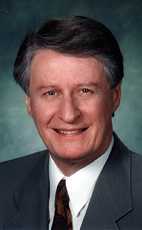Mr. Speaker, everyone is interested in co-operatives. I have a particular interest in them, since there are agricultural co-operatives in my riding. Naturally, many of my constituents are members of caisses populaires, and even the weekly newspaper in my riding belongs to a co-operative with several hundred members. This weekly owns the riding's radio station, CKNU FM, at 100.9, which broadcasts news about the Portneuf area from Quebec City to Trois-Rivières.
So you will understand that, when the topic of co-operatives comes up, I am not just interested but very much involved because it is a topic of importance not just in my region but in Quebec and, as I can see, in Canada as well.
As other speakers for the Bloc Quebecois mentioned earlier, we are going to support this bill in principle. There are certain provisions that worry us, however, and I would like to ask our hon. colleague on the government side why, in the case of housing co-operatives, for example, the procedures for dissolution are different from those of other co-operatives.
What is the reason for these differences? Could she clarify this for us? I await her reply.

